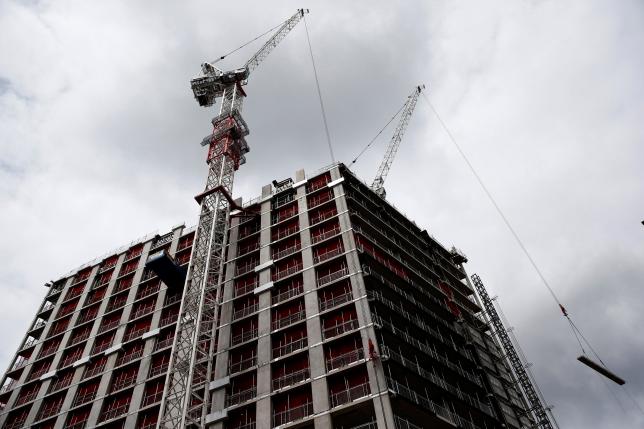Britain’s commercial property market took a beating on Tuesday as a jump in demand by investors to take out money from one real estate fund led the manager to suspend withdrawals, driving a sell-off in a range of industry-related stocks.
That came as the Bank of England reiterated concerns about the outlook for commercial property after Britain’s recent vote to leave the European Union and said any market stress could be exacerbated by investor demand to redeem money quickly, potentially forcing funds to sell properties cheaply in order to raise cash.
The trigger for the early market slide was news late Monday that Standard Life Investments, the fund arm of insurer Standard Life (SL), had suspended trading on one of its UK property funds.
In response, listed mutual funds focused on property were hit hard. Standard Life’s listed real estate funds (SLI) slumped 14.2 percent in early trading, while F&C Commercial Property Trust (FCPTL) fell 7.4 percent and Schroder Real Estate Investment Trust (SREIT) more than 10 percent.
“When open ended funds close the gates the market starts getting nervous,” said Collette Ord, an investment trust analyst at Numis said.
Open-ended funds usually allow retail investors to withdraw cash at any time.
“The danger is if open-ended funds have to sell assets at distressed levels, that will then lead to price discovery and force listed trusts to also write down assets.”
Concerns that weaker consumer sentiment could spread to other investments added to pressure on asset managers and insurers, which are already grappling with stubbornly high investor outflows and a dearth of investment income. Schroders (SDR) was down 5.5 percent, Legal and General (LGEN) 6.7 percent and Standard Life itself 4.8 percent lower.
Goldman Sachs, Barclays and Credit Suisse are among major banks forecasting a recession in the UK in the second half of 2016 or early 2017 with firms holding off on hiring and capital spending as a key reason.
A grim outlook for the UK economy and the hit to businesses from Brexit are the latest dents to investor confidence already frayed by worries over the Italian banking system, sluggish growth in Europe and China and choppy markets.


